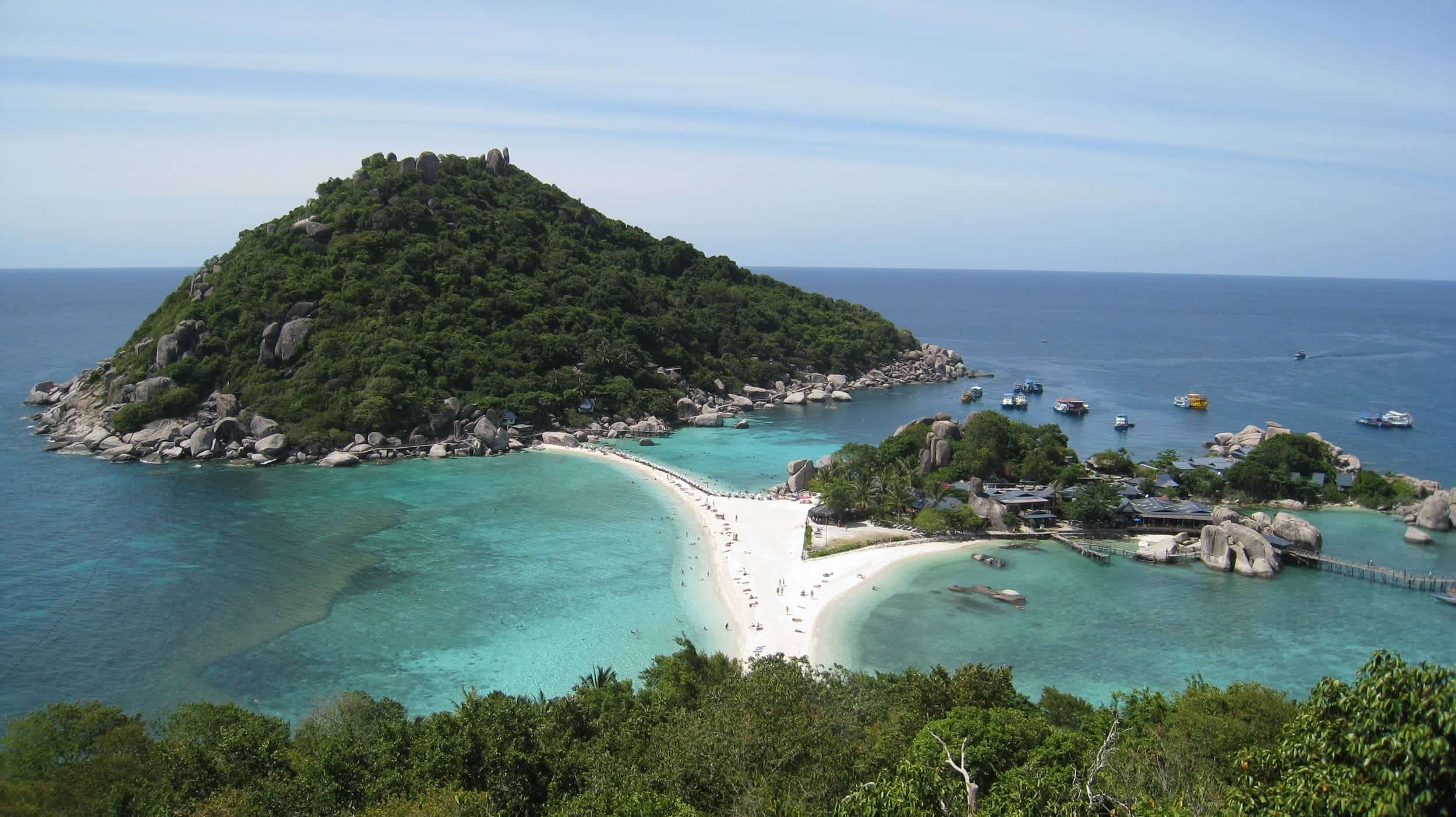
In recent years, as globalization and technology have become increasingly available to everyone, more people began to explore the world's beauty.
It’s a great way to grow and connect, but it also has many downsides.
One of the most significant downsides is environmental preservation and how tourists are “communicating” with nature.
It’s not a strange thing today to stumble on many different projects trying to make people aware of the problems we’re facing and change their mindsets to become a part of the solution instead of just supporting the issue.
If you’re planning to travel around Thailand, on top of crazy beautiful places and delicious food, you'll experience pollution, which goes along with the locals' poor education about the problem.
Many organizations are trying their best to educate people and help the local community, but it’s not enough.
Be the change you want to see in the world, and you never know who’d you might inspire.
In this article, we will share a few tips that are easy to apply, making your experience traveling through Thailand easier.
You'll also leave a smaller footprint on the environment if you choose to travel in these ways.
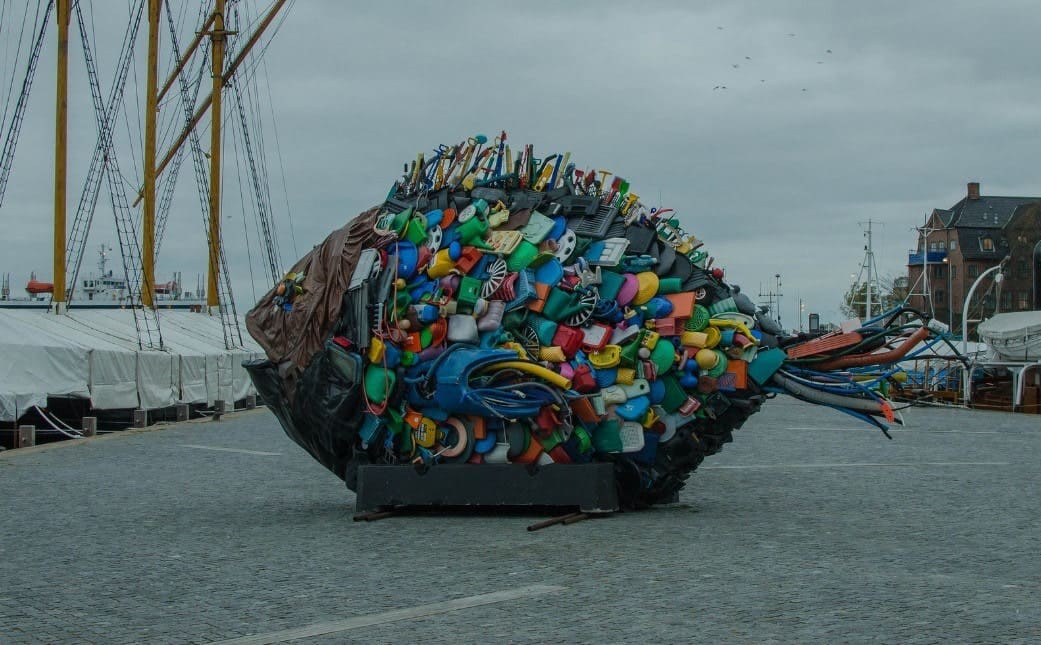
Table of Contents
1. Say NO to Single-Use Plastic Products
Thailand is filled with plastic! When you look at the statistics, from 10 most-polluted rivers, a whopping eight rivers are located in Asia.
When you go to any store or street food vendor, you'll be shocked at how much single-use plastic they use.
Almost everything you buy has two or three plastic bags.
In the food markets, they will give you fruits precisely packed in several layers of plastic bags, but do you need that?
Plastic straws are also widely used here, and so many of them end up in the ocean.
Ask yourself, do you need a straw when drinking your coffee, juice, or any other drink?
The next big problem is plastic bottles. Almost everyone uses them, and you will see many bottles thrown away near the roads or on the beaches.
Some parts of Thailand still struggle with filtered water, but many places offer free drinking water.
Our advice is to invest in a reusable bottle and refill it in hostels or restaurants. You'll save a bunch of money and help nature too.
Try to bring awareness each day to your plastic consumption and lower it as much as possible.
Chances are you don't need the majority of plastic products offered to you, and you'll have a fine experience without them.
Be conscious about it and educate the people around you as well.
And one more thing. Most Asian countries don’t have recycling programs, which means the plastic is usually dumped in a landfill, burned, or buried.
You can’t imagine how much harm this causes the environment, people, and animals.
Say NO to single-use plastic and educate local communities.
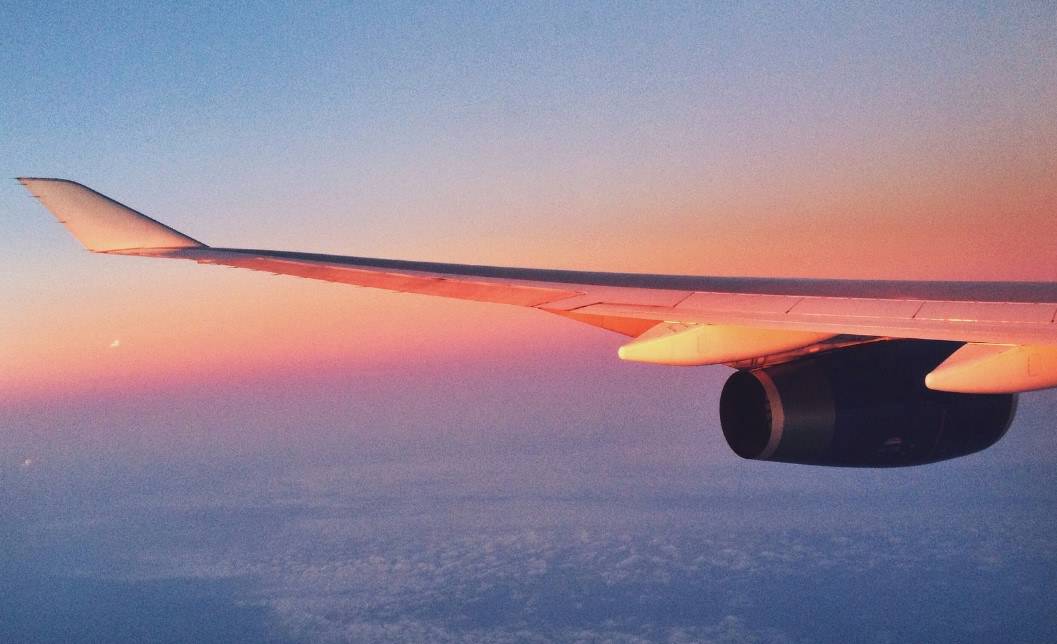
2. Reduce Your Carbon Footprints As Much As Possible
Carbon footprints are relatively huge in many parts of Thailand because of heavy traffic and many vehicles circulating through the cities.
Almost everyone has a motorbike, and in some places, the number of bikes is even more significant than the number of people. Imagine that!
Many Asian countries don’t have regulations for carbon emissions, so you will see many kinds of vehicles; some are self-made.
These vehicles produce crazy amounts of carbon and are slowly killing the atmosphere.
How can you help in fighting that?
Whenever you have a chance, just walk or ride a bicycle.
Also, don’t forget to share drives or use public transportation. That will help in reducing your carbon footprint too.
Do you want to travel long distances?
The best way to do it is overland, as planes produce crazy amounts of carbon. You can use a site like Bookaway to scout routes and buy bus, ferry, and train tickets online.
So whenever you have the chance, skip a plane ride and enjoy the views from the ground while exploring new places.
Did you know that Bangkok has a BTS train and other ways to travel around, like driving on a local boat?
Check out off-the-beaten-track of Bangkok and reduce your footprints.
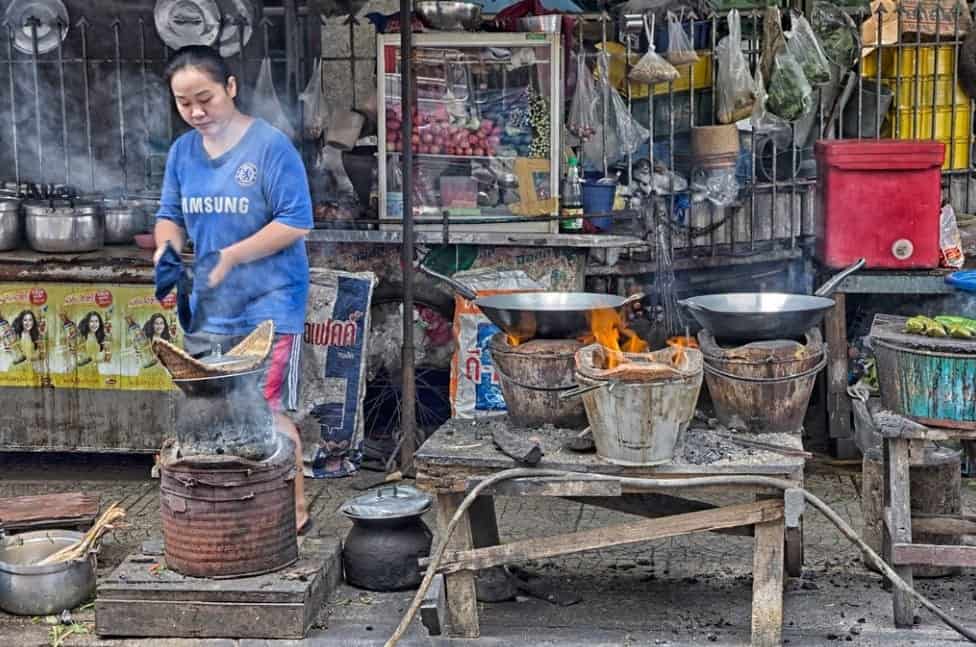
3. Eat Locally Produced Food
You might wonder what the connection is between locally produced food and environmental preservation, right?
Well, we already talked about the food and plastic connection — one more note on that point.
Whenever you can, try to eat in restaurants or food markets instead of getting food to go.
The reason is simple – you'll create less waste by eating at the restaurant.
Thailand is very popular for its local food markets and street food. Many families live from the food they prepare and sell.
Supporting locals means that all the money goes into their pockets, and the economy grows, so our advice would always be to choose locally-produced food.
If you go to restaurant chains, you’re not supporting locals as the workers there are making pennies per hour.
Also, you’re supporting huge companies that are responsible for the majority of environmental pollution today. Just think about it for a second.
To make eating from small vendors and restaurants easier, compare the Lingapp vs Babbel and pick one to learn basic Thai phrases.
Another thing is to try to eat as little meat as possible.
We’re not promoting a vegetarian or vegan lifestyle, but here are some points to support this idea.
Fruits and vegetables are usually produced locally, and you can get seasoned fruits and vegetables on any corner of the street from locals who’re selling them.
They usually use natural fertilizers and equipment to plant and harvest their crops, which doesn’t cause as much damage to the environment.
Whenever you choose the food produced by huge corporations, you are supporting deforestation, water pollution, global warming, etc.
Did you know that livestock is one of the biggest methane producers, one of the most damaging gases contributing to the greenhouse effect on Earth?
Choose wisely when it comes to what you’re eating and who you are supporting.
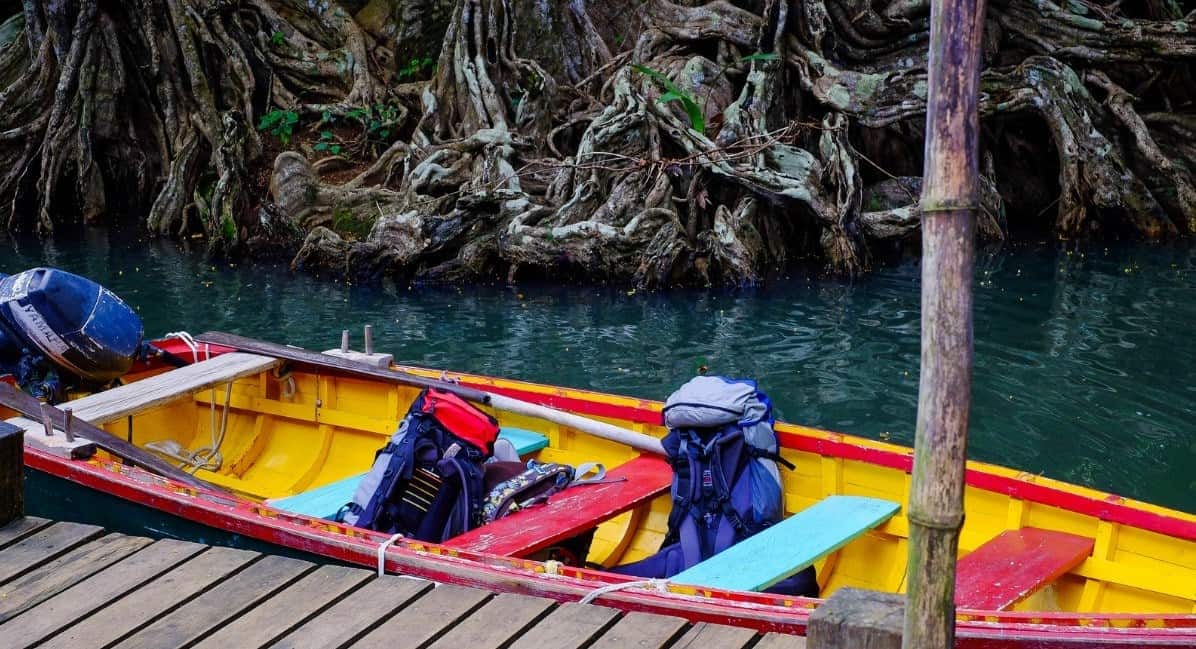
4. Pack Light
There are so many conversations about packing light for trips, but only a small amount of travelers stick to this rule or advice.
It not only benefits you and makes your trip easier and cheaper, but also hugely benefits the environment.
For instance, the more massive your luggage, the more fuel and power required to transport it.
Heavier luggage means more fuel consumed, which results in more carbon emissions in the air.
It is the same rule for every means of transportation. Pack only the essential stuff in your backpack.
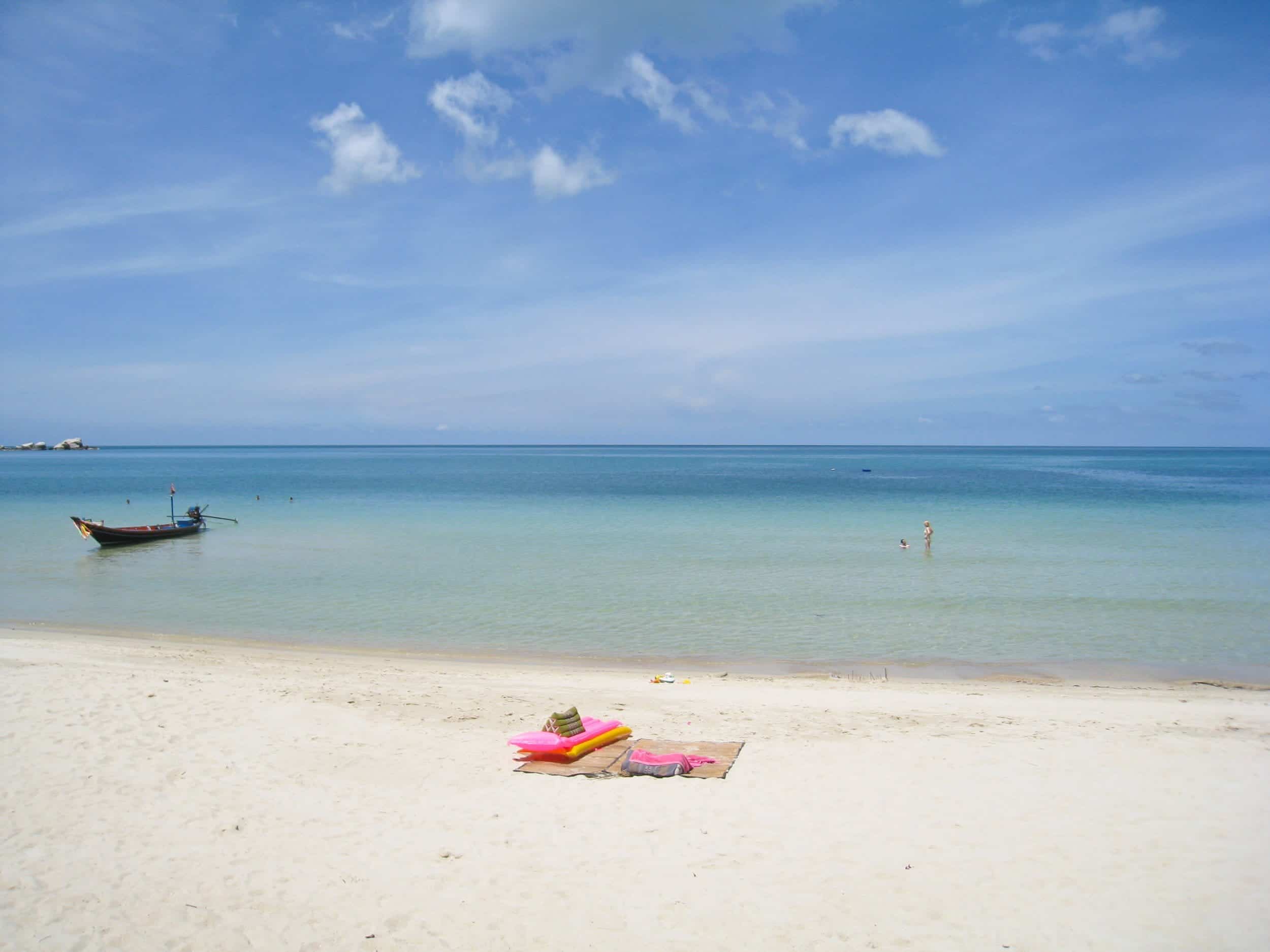
5. Support and Volunteer for Sustainable ECO-Projects
There are many projects and NGOs that are doing a great job related to environmental preservation.
The excellent way to make an impact on a bigger scale is to start supporting one of these projects and make a significant change in a local community.
When applying for a volunteer project, always check every detail about the project and see how sustainable it is.
Many projects claim they are sustainable, but when you start helping, you will see a completely different picture.
Don’t be afraid to ask as many questions as possible when applying for the project, as that’s the way you save everyone’s time.
Many projects will look for people without any skills, which means if you start working on the project, you’re probably taking away the work from a local person.
In the end, you’re not helping anyone that way.
Be very selective about the projects and always remember one thing – ask, ask, and ask more questions!
In Thailand and all over southeast Asia, projects focused on beaches, and environmental cleanup have become very popular in the last decade.
If you’ve ever traveled to any coastal place or island during the low season, you will have a hard time enjoying the beach as there will be tons of plastics and all other waste.
Many people and organizations started their cleanups and education programs for local people.
These projects are outstanding as you can see your impact immediately.
Once we were in Koh Lanta, which is located in southern Thailand, and you literally couldn’t see a single grain of sand. It was all plastic!
We joined the project Trash Hero (an international project), which is all about nature preserving and cleanups.
We did it twice, and after the second cleanup, we saw a considerable improvement and saw people enjoying and swimming in the ocean.
Afterward, we’ve got the pictures of so many people cleaning up the beaches and forests, including locals.
Right now, this project is huge in Koh Lanta, and they started to focus on educating small kids about the subject.
Participating in eco-friendly and sustainable travel isn’t so hard. You just need to change and implement a few new habits in your travel routine.
Always aim to be a good example and inspire people to grow and help the planet.
Also, eco-traveling is far cheaper, so if you’re on a backpacker's budget, this way of traveling will help you prolong your trip!
A passionate traveler who is interested in shortening the gap between rich and poor by helping in the field of education. Very passionate about the diversity of cultures around the world and meeting new people that inspire me on a daily basis to continue doing great things. Read more at Vietnam Chronicles.
Planning a trip? Go Backpacking recommends:
- G Adventures for small group tours.
- Hostelworld for booking hostels.

Philip
Thursday 7th of February 2019
If you are a diver, learn and participate in state of the art Coral Propagation workshops and dives clinics. (I do.) It's a great way for SCUBA divers to give something back to the reefs that we love. Corals can now be grown on totally organic native material following 20 years of research. Recent projects are in progress on Koh Phi Phi and Koh Haa (off the coast of Koh Lanta).
Alistair Langfield
Thursday 7th of February 2019
Nice post! Thanks for sharing!
Stephen Schreck
Monday 4th of February 2019
Love this post! Traveling eco-friendly is more important than ever!
Dave
Monday 4th of February 2019
Thanks Stephen, couldn't agree more.
Nandih
Monday 28th of January 2019
Hi,
This post is so useful and easy to implement to saving our planet. Thanks!!
All of travelers have to be aware that we need to preserve our earth for better future to our next generation.
Best wishes,
Nandih